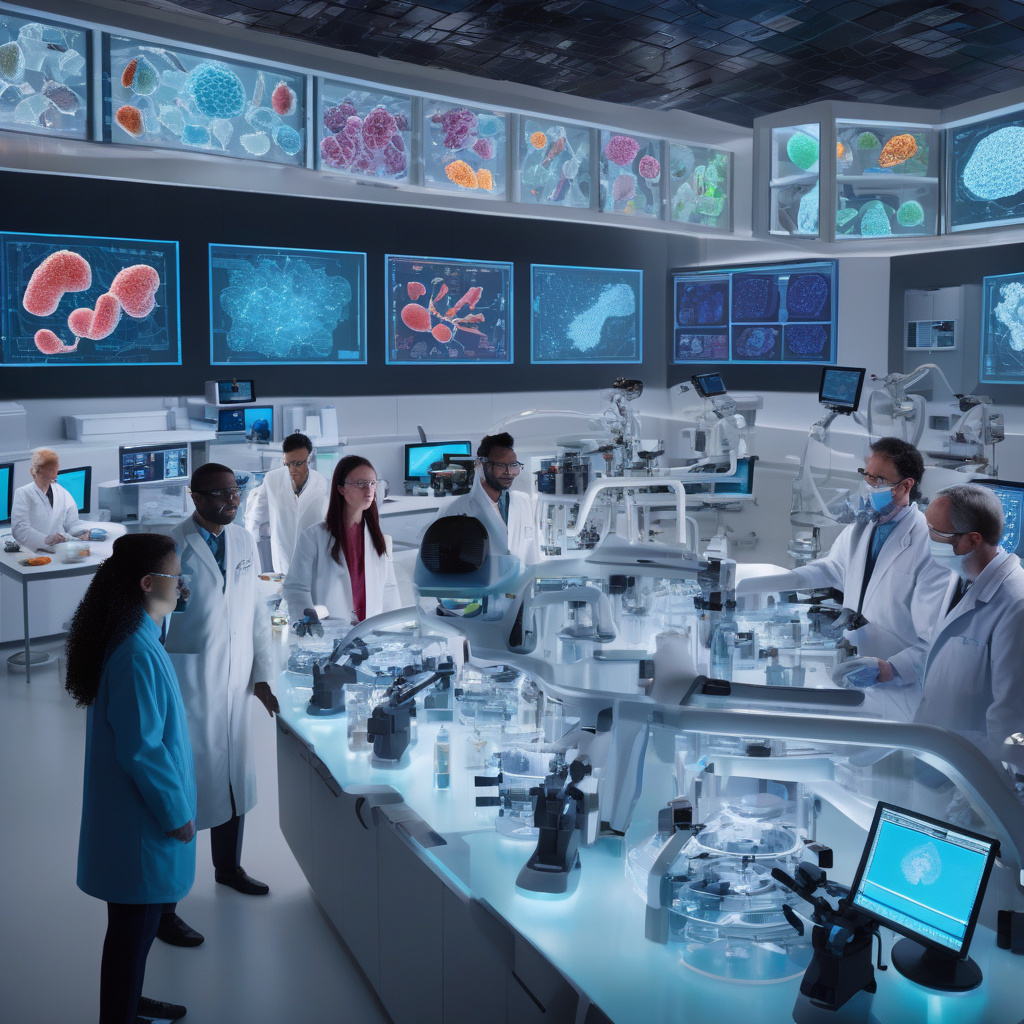AI-Designed Proteins Surpass Nature in Genome Editing
In the realm of genetic engineering, the intersection of artificial intelligence and biochemistry has brought forth a groundbreaking discovery: AI-designed proteins that surpass the capabilities of those found in nature when it comes to genome editing. This remarkable advancement has the potential to revolutionize the field of medicine, particularly in the development of gene and cell therapies for conditions such as cancer and rare diseases.
Traditionally, genome editing has relied on naturally occurring proteins, such as CRISPR-Cas9, to make precise modifications to the genetic code of living organisms. While these proteins have been incredibly valuable tools, they are not without limitations. One of the key challenges in using natural proteins for genome editing is their specificity; off-target effects can lead to unintended changes in the DNA, potentially causing harmful side effects.
Enter artificial intelligence. By harnessing the power of machine learning algorithms, researchers have been able to design custom proteins that are not bound by the constraints of natural evolution. These AI-designed proteins exhibit a level of precision and efficiency that far surpasses that of their natural counterparts, offering a promising new approach to genome editing.
The implications of this discovery are vast, particularly in the realm of gene and cell therapies. With AI-designed proteins, researchers may be able to develop more targeted and effective treatments for a wide range of conditions, including cancer and rare diseases. By precisely editing the genetic code of patients’ cells, it may be possible to correct disease-causing mutations and restore normal cellular function.
This level of precision is crucial in the field of medicine, where even small errors in genome editing can have serious consequences. By using AI-designed proteins, researchers can minimize the risk of off-target effects and ensure that treatments are both safe and effective. This could accelerate the development of new therapies and bring hope to patients who are in desperate need of better treatment options.
One of the key advantages of AI-designed proteins is their versatility. Unlike natural proteins, which are limited by the constraints of evolution, AI-designed proteins can be tailored to specific tasks and optimized for maximum efficiency. This level of customization opens up new possibilities for genome editing, allowing researchers to tackle complex genetic diseases that were previously considered untreatable.
As the field of genetic engineering continues to advance, the marriage of artificial intelligence and biochemistry holds immense promise for the future of medicine. By combining the power of machine learning with the precision of protein design, researchers are unlocking new possibilities for treating some of the most challenging diseases facing humanity.
The discovery of AI-designed proteins that surpass nature in genome editing represents a major milestone in the field of biotechnology. With the potential to accelerate the development of gene and cell therapies for cancer and rare diseases, this breakthrough heralds a new era of precision medicine. As researchers continue to explore the capabilities of AI-designed proteins, the possibilities for improving human health and well-being are truly limitless.
AI, Proteins, Genome Editing, Gene Therapy, Precision Medicine










